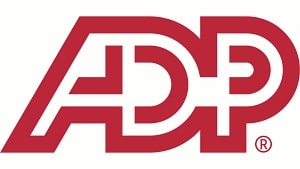Estimated reading time: 5 minutes
(Editor’s Note: Today’s article is brought to you by our friends at ADP, a comprehensive global provider of cloud-based human capital management (HCM) solutions. You can stay up to date on HCM topics with the ADP Spark blog. Check it out when you have a chance. And enjoy the read.)
One of the lessons that I had to learn as a consultant was just because I can do something doesn’t mean I should. A great example of this is my taxes. Can I prepare my own taxes? Yes, I can. But there are a couple of reasons that I choose to get professional help instead.
- I need to use my time wisely. The time I spend doing tax-related stuff could be better spent generating revenue by working on client projects or building my business.
- I must keep my employment tax knowledge current. Payroll tax is complex and always changing. There are people and organizations who do nothing but focus on payroll taxes and they have to stay on top of the latest changes.
The same “can and should” philosophy that I’m using as a small business owner applies to larger organizations. Keep in mind this is not a headcount conversation. Let me repeat that – this isn’t a conversation about reducing headcount. Let’s use the tax discussion as an example. Only this time with employment taxes. Just because the organization can do their own employment taxes, it doesn’t always mean they should. In fact, this could be a time when it’s better if they didn’t so they reduce their compliance risk.
What are employment taxes? In the United States, employment taxes are the taxes that organizations are responsible for after they pay someone. It includes income taxes, FICA taxes (also known as the Federal Insurance Contributions Act), unemployment taxes, and more.
Can organizations file their employment taxes themselves? Sure. But more companies get them wrong than you would think. According to the U.S. Justice Department, employment tax violations represent more than $91 billion of the gross tax gap. Yes, that’s billion with a “B”.
Are there implications for not filing employment taxes on time or in the correct amount? Yes. Organizations can be subject to fines and penalties. There’s also the issue of losing trust with employees because their taxes weren’t filed. I published a reader note about this very subject earlier this year.
Bottom-line: Employment taxes are complex and changing. The consequences of not filing on time or not submitting the right amount are expensive. And I’m sure I don’t have to tell anyone that employees don’t like it when their deductions are incorrect.
So, wouldn’t it be great if organizations could get some help where employment taxes are concerned? The answer to this question is “yes”.
The good news is our friends at ADP have an employment tax service that will file and submit your payroll taxes. Before I explain the service, let me address a couple of questions.
Some people might be saying, “Yes, this is interesting but I’m in HR or I’m an ops manager and don’t have responsibility for payroll.” And I totally get it. But this is one of those things where you might not have responsibility for payroll … but you should have an opinion about it. When employees have questions about their pay, they often go to their manager or HR for answers. You want to have confidence that your process is solid.
The second question is about compatibility. I’m sure some people might be saying, “Sorry, we don’t use ADP for payroll…so that leaves us out.” Not true. ADP’s SmartCompliance Employment Tax module integrates with most major payroll systems and enterprise resource planning (ERP) systems.
Back to ADP’s employment tax service. This service offers the following:
- Technology systems that will detect and flag errors in the organization’s tax information.
- Automated tax filings (i.e., quarterly and annual at the federal, state, and local level)
- 24/7/365 access to filings, reports, deposits, etc.
- And a dedicated support team of employment tax experts, many of whom are Certified Payroll Professionals (CPP).
I know it’s one thing to hear a list of benefits and another to see the results. ADP shared a great case study from Seminole Gaming, Hard Rock Support Services. Seminole Gaming is in the hospitality industry with 15,000 casino, food, and restaurant employees in 30 states. A huge challenge for Seminole Gaming was staying compliant with a multi-state operation.
Steven Baumann, payroll controller at Seminole Gaming, said that ADP’s employment tax module was an “easy to use, plug and play” solution that allowed his team to ensure that their Form 941s and W-2s went out on time with the correct information. It also gave employees greater access to their payroll information. Instead of everything being handled via paper through the mail, it could be accessed online.
The other benefit of adding the employment tax module for Seminole Gaming was it ensured the payroll team was working on the right things. Again, this solution isn’t designed to be a headcount reduction activity. But what it can do is allow the payroll team to spend time helping employees with their financial wellbeing.
Efficiency doesn’t mean doing everything on your own.
We all know that organizations are very focused on efficiency. Truth is, they always have been. But efficiency doesn’t always mean doing everything yourself. This is a great time to explore the options that are available in terms of filing employment taxes.
You can check out ADP’s SmartCompliance Payroll Tax site. And they have a great resource guide titled “Key Considerations to Reduce Organizational Risk with Payroll Tax Management”.
Everyone wants the same thing – to pay our tax obligations on time and pay the right amount. The good news is we don’t have to (and shouldn’t) figure it out all by ourselves.
83








